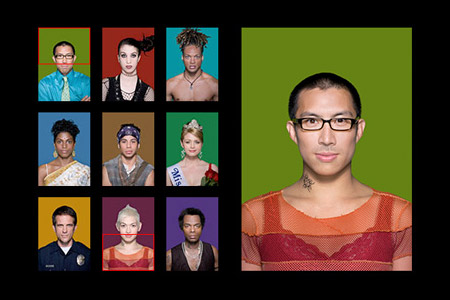Peer-reviewed by my neurons posted a research summary that shows that changing one stereotype can also alter related stereotypes. The blogger mentions briefly how this might relate to gender issues, but it seems worthy of a little more thought.
In terms of the political reality, Eric Horow (he's the blogger) notes that this knowledge can be used to enforce party allegiance because any movement away from the stereotype of the party (the GOP favors small government, for example) can be used to weaken the party's identity. This is good for voters but bad for the political parties. [I'm not convinced this is true - Bush II created a massive government without seriously damaging his party's image.]
However, with gender issues, this can only be a good thing. Every time we see a male who is sensitive and strong, caring and directed, gentle and powerful, the old stereotypes of one-dimensional masculinity get broken down. These stereotypes are limiting and destructive, so the more we can change them, the better for all of us (and for women as well).
This is definitely one case where we can be the change we want to see in the world.
Changing One Stereotype Can Alter Another Stereotype
January 15, 2012Stereotypes tend to be bad, and therefore understanding what causes them is worthwhile. Research shows that a variety of information about a particular group or its members can change a stereotype, but that’s not the only thing. A new study finds the stereotypes of two groups can become interdependent and therefore one grou’s stereotype could change based on information about a different group.
More specifically, when there are two mutually exclusive groups (e.g. men and women) with different stereotypes (e.g. men are dirtier, women are cleaner) information that is incongruent with the competent group’s stereotype (e.g. Sara and Stacy are messy) can alter the stereotype of the other group (Men aren’t that dirty). This is not a good thing for society. When a reputation is based on something irrelevant, suboptimal decisions are bound to be made.
I also can’t help but think this is a bad sign for the U.S political system. According to reasoning laid out in the study, when a Republican is shown to support government spending it would not only weaken the stereotype of Republicans as fiscal conservatives, it would also lessen the stereotype of Democrats as big spenders. The depressing takeaway is that enforcing party discipline is even more important because any deviation will harm your reputation and improve the reputation of your opponent. It’s yet another reason that we’re bound to arrive at an equilibrium in which both parties voluntarily censor themselves.
———————————————————————————————————————————————————-
Maris, S., & Hoorens, V. (2012). The ISI change phenomenon: When contradicting one stereotype changes another Journal of Experimental Social Psychology DOI: 10.1016/j.jesp.2012.01.001

No comments:
Post a Comment